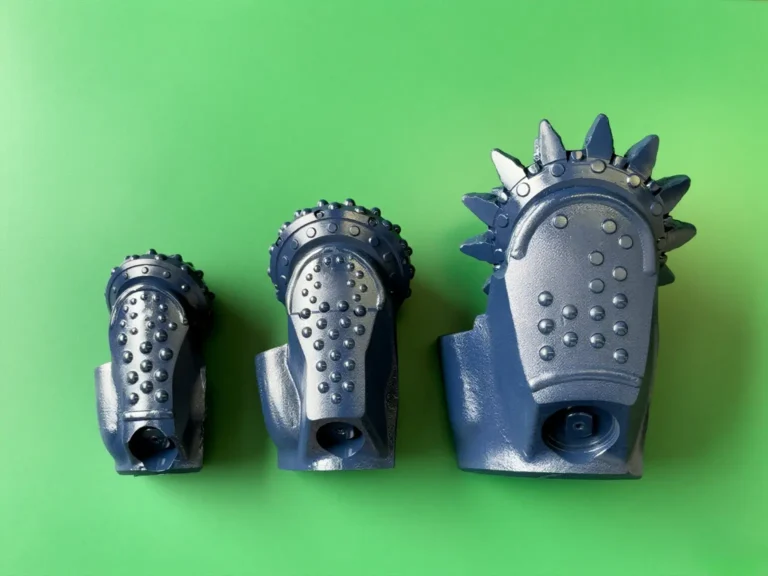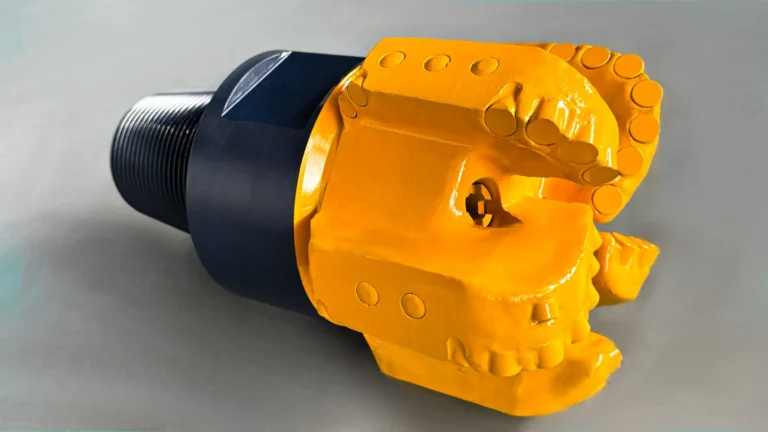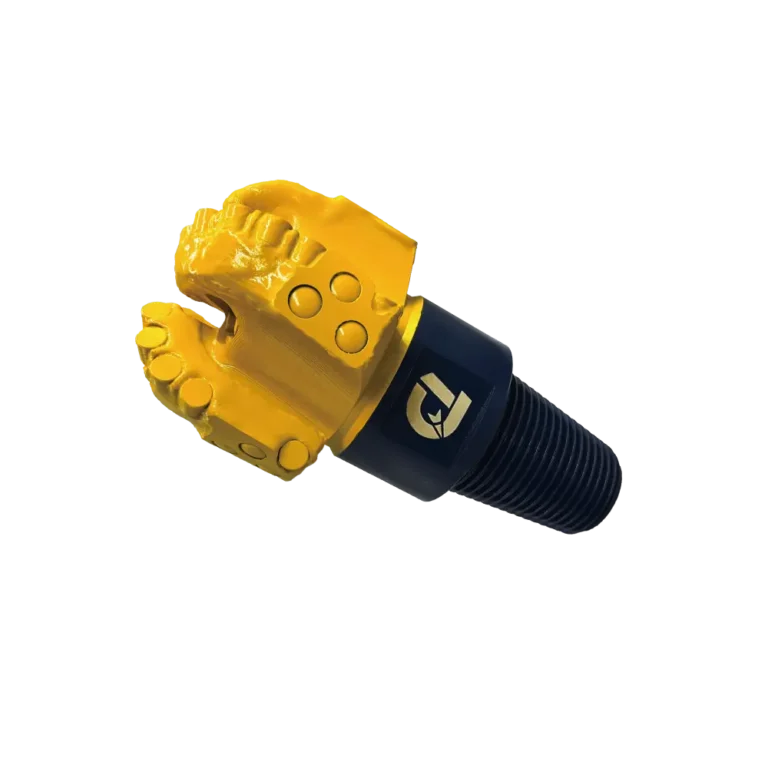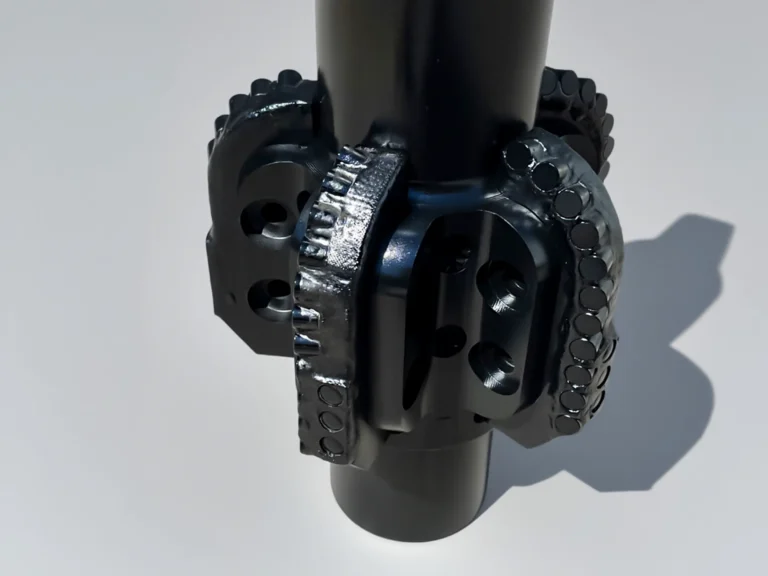When drilling a water well, choosing the wrong tricone bit can waste time, money, and materials.
To choose the right tricone bit for water well drilling, you need to match the bit to your formation type, consider bearing type and insert style, and make sure the bit size and thread are compatible with your rig.

Before you make a purchase, you need to be sure the bit is fit for your exact drilling job. There are too many options out there—and the wrong choice can delay your project or damage your equipment. Let me walk you through the key points I always check when helping customers select the right tricone bit.
Understand the Formation: Soft, Medium, or Hard Rock?
Ignoring the type of ground you’re drilling through is one of the easiest ways to burn through a bit too fast.
Match your tricone bit to the ground: soft formations need milled teeth, while hard rock demands TCI inserts with stronger structure.

What Formation Are You Drilling?
Water well projects vary. Some are in loose soil or clay, others hit limestone or basalt. That's why tricone bits are made with different cutting structures. The bit you choose needs to match your formation.
- Soft formations like clay, shale, or sand benefit from milled tooth bits. These have broader, more aggressive teeth that can scoop and cut quickly without too much wear.
- Medium formations with mixed sand, silt, or soft rock often need TCI bits (Tungsten Carbide Inserts) with moderate tooth spacing.
- Hard formations, such as granite or limestone, require TCI bits with tighter rows and strong inserts to withstand impact.
Choosing the wrong bit for your ground will wear the tool prematurely or reduce your rate of penetration. I’ve seen projects stuck for days because of this single oversight.
Here's a quick reference:
| Formation Type | Recommended Bit Type | IADC Code Example |
|---|---|---|
| Soft | Milled Tooth | 111 – 114 |
| Medium | TCI | 517 – 537 |
| Hard | TCI (Hard Inserts) | 637 – 837 |
Know the IADC Classification and What It Means?
A long code on your bit isn’t just for show—it holds all the answers.
The IADC code tells you the best formation fit, tooth structure, and bearing type of the tricone bit.

Why IADC Matters
IADC stands for the International Association of Drilling Contractors, and their system gives each bit a three-digit code.

- The first digit (1–8) tells you the type of rock it’s made for. Lower numbers mean soft formations, higher ones mean hard.
- The second digit (1–4) describes the type of cutting structure (tooth type and insert shape).
- The third digit reveals the bearing type, seal, and any special features.
Once you understand this code, choosing becomes much easier. You don’t have to guess. You just look for a code that matches your drilling conditions.
Choose Between Milled Tooth and Tungsten Carbide Inserts (TCI)?
You’ve probably seen both types—but do you know which one your job really needs?
Milled tooth bits are great for fast, low-cost drilling in soft ground. TCI bits last longer and work better in tough rock.

Pros and Cons of Each Type
Let’s break it down simply.
-
Milled Tooth Bits:
- Lower cost
- Faster penetration in soft formations
- But they wear faster, especially in rocky zones
-
Tungsten Carbide Inserts (TCI):
- Tougher and more durable
- Ideal for medium to hard formations
- Better for long-term projects where durability matters
Here’s a quick table to compare:
| Feature | Milled Tooth | TCI Insert |
|---|---|---|
| Cost | Lower | Higher |
| Drilling Speed | Fast in soft ground | Moderate |
| Formation Suitability | Soft only | Medium to Hard |
| Durability | Lower | Higher |
Open Bearing vs. Sealed Bearing: What’s Best for Water Wells?
Bearing failure is one of the main reasons bits die early.
Sealed bearings last longer in water wells by keeping out mud, water, and sand.

What’s the Difference?
- Open Bearings: Cheaper, and work okay in clean drilling fluids. But in water well drilling, where groundwater, sand, and debris are common, they wear out quickly.
- Sealed Bearings: Protected with a seal and often grease-packed. They cost more but provide better performance and longer life—especially important if the bit must go deep.
For water wells, especially those over 50 meters deep, I always recommend sealed bearings unless you’re on a very tight budget or drilling through soft soil only.
Bit Size and Connection Thread – Compatibility Matters
If your bit doesn’t fit your rig, the rest doesn’t matter.
Always match the bit’s size and thread to your drill rig and borehole diameter.

Getting the Right Fit
Before selecting a tricone bit, check:
- Hole Diameter: This determines the overall bit size. Most water wells need bits from 6" to 12 ¼".
- Rig Compatibility: Check the thread type (API Reg, API IF, etc.) to match your drill pipe.
- Torque Requirements: If the bit is too large for your rig, it may cause mechanical stress or failure.
If you're unsure, send us your rig specs—we’ve helped many customers avoid mismatches that would have cost them days.
Consider the Cost-Performance Ratio
Not every project needs the most expensive bit—but cheap can be costly too.
Balance your bit’s upfront cost with its expected life and the cost of downtime if it fails.
Think Beyond Price Tag
Price alone isn’t the right measure. What matters is cost per meter drilled.
Let’s compare:
| Bit Type | Cost | Expected Life | Cost per Meter (Est.) |
|---|---|---|---|
| Cheap Milled Tooth | Low | 100 m | High (due to replacement) |
| Mid-range TCI | Medium | 300–500 m | Balanced |
| Premium TCI | High | 800–1000 m | Low (if project is long) |
I’ve seen buyers lose more from downtime or early bit wear than they saved upfront. That's why I always ask about the project scope first.
Why DRILLNOVA Tricone Bits Are Trusted in Water Well Projects?
Quality, durability, and global service make a difference.
At DRILLNOVA, we design our tricone bits to meet real-world drilling needs – with great feedback from water well projects in Australia, the United States and Southeast Asia.
What Sets Us Apart
- We use high-strength alloy steel and precision heat treatment for better wear resistance.
- Our TCI bits are engineered with optimized insert spacing to cut efficiently and stay sharp longer.
- Whether you’re drilling in clay or granite, we have bits for every condition.
- And most importantly, we don’t just sell tools—we offer full support, from bit selection to after-sales advice.
Our customers—procurement managers, contractors, and wholesalers—trust us because we make their jobs easier and their drilling more reliable.
Conclusion
Choosing the right tricone bit means understanding your formation, your rig, and your project goals. And we’re here to help every step of the way.
💡 Still not sure which tricone bit is right for your next water well drilling job?
At Drillnova, we offer a full range of tricone bits specifically designed for water well drilling, covering various formations from soft soil to hard rock. Whether you're drilling shallow or deep wells, we've got the right bit to help you drill faster and more efficiently.
👉 Click here to explore our water well tricone bit options and get in touch with us for a quote or expert recommendation.




